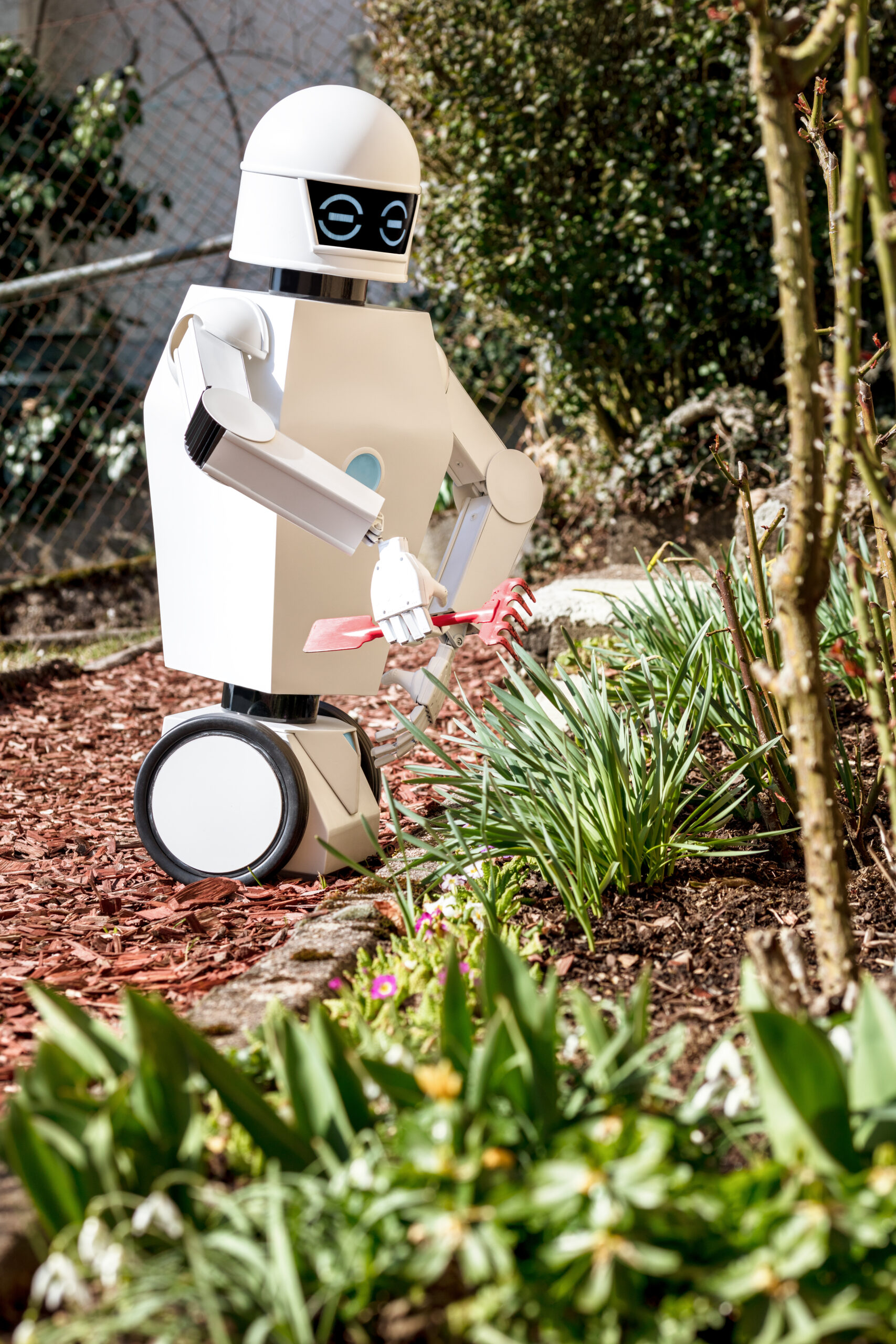After a recent study looked at the impact on AI on urban ecosystems, ecologist Ken Thompson explores how artificial intelligence might affect the way we garden
You can hardly fail to have noticed the recent kerfuffle about artificial intelligence. But surely one consolation is that it’s hardly likely to have much effect on gardening.
Or is it? Recently a group of scientists and policy-makers got together to think about just that, and their deliberations were published in a paper in the journal Nature Ecology and Evolution. Specifically, they were attempting to forecast the impacts of ‘robotics and autonomous systems’ (but let’s just call them ‘robots’) on urban ecosystems. The paper has 77 authors from across the world, and reports the deliberations of 170 individuals, but the ringleaders are from the University of Leeds.
The environment might need to be simplified to accommodate robots’ dumb behaviour
Such ‘horizon-scanning’ exercises are currently very fashionable, but whether they actually work is a moot point. No doubt there will soon be a rash of horizon-scanning retrospectives, asking whether we foresaw many (or even any) of the developments that actually came about; I suspect this will be a lot like watching old episodes of Tomorrow’s World. After all, hardly anyone saw Covid-19 coming, and no-one seems to have listened to the few who did.
Nevertheless, from a gardening perspective, I think this particular exercise has come up with a few things worth looking out for. Their conclusions are listed under ‘threats’ and ‘opportunities’, and call me an old pessimist, but the things that caught my eye all come under the heading of threats rather than opportunities.
A robot that would tidy up for us could lead to a world without many of its rough edges
Are robots as clever as we think they are?
For example, how about this? ‘Trees and other habitat features will be reduced in extent or removed to facilitate easier robot navigation, and/or will be damaged through direct collision’. In other words, robots won’t be quite as clever as we would like them to be, and the environment might need to be simplified to accommodate their dumb behaviour. An early example of this, it seems to me, is the inability of robot lawnmowers to cope with some of the intricacies of real gardens. And imagine trying to train a robot not only to distinguish garden plants from weeds, but also to leave seedlings (for the time being anyway) that are probably weeds, but might just turn out to be something interesting.
Once literally everything is delivered to your door by automated drones, you may see less of your local greenspace.
Nothing wrong with a bit of mess …
In a similar vein, ‘Biodiversity will be reduced due to generic, simplified and/or homogenized management by robots’. Many of us find the urge to ‘tidy up’ hard to resist, but fortunately this natural tendency is countered by laziness, and therefore much of the messy complexity of the real world is left alone by default. A robot that would tidy up for us could lead to a world without many of its rough edges and scruffy bits, along with the wildlife that depended on them. Worse than that, an indestructible robot helper might tempt us to sort out unpopular wildlife that would otherwise be left alone, such as the nests of (anti-)social wasps. I hope I don’t have to point out that even if wasps seem a waste of space to you, in reality they are an important part of the garden ecosystem. I never tire of watching my local wasps searching for, and then chewing up, cabbage white caterpillars, so wherever they’re nesting, I’d like them left alone please.

… or with doing your own gardening
My third potential threat may well be the worst: ‘robots will reduce human–nature interactions’, perhaps in surprising ways. For example, once literally everything is delivered to your door by automated drones, you may see less of your local greenspace. This may not only have negative impacts on your physical and mental health, never mind the livelihoods of the poor souls who used to work in your local shops, you might also come to care less about the management, or even the existence, of that greenspace. And even if you spend as much time in your garden as ever, I’m not sure that that time is doing you as much good as it might, if all you’re doing is reclining with a gin and tonic while your pet robot is doing all the hard work.
In short, getting your hands dirty is good for you, and be careful what you wish for.